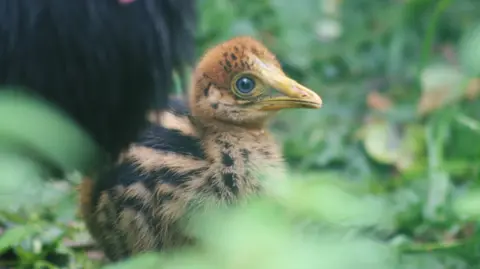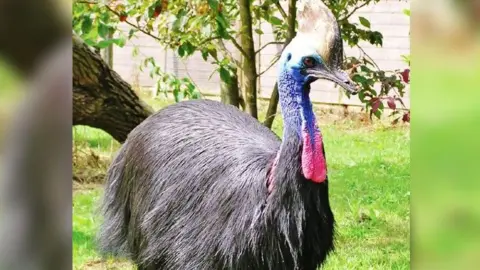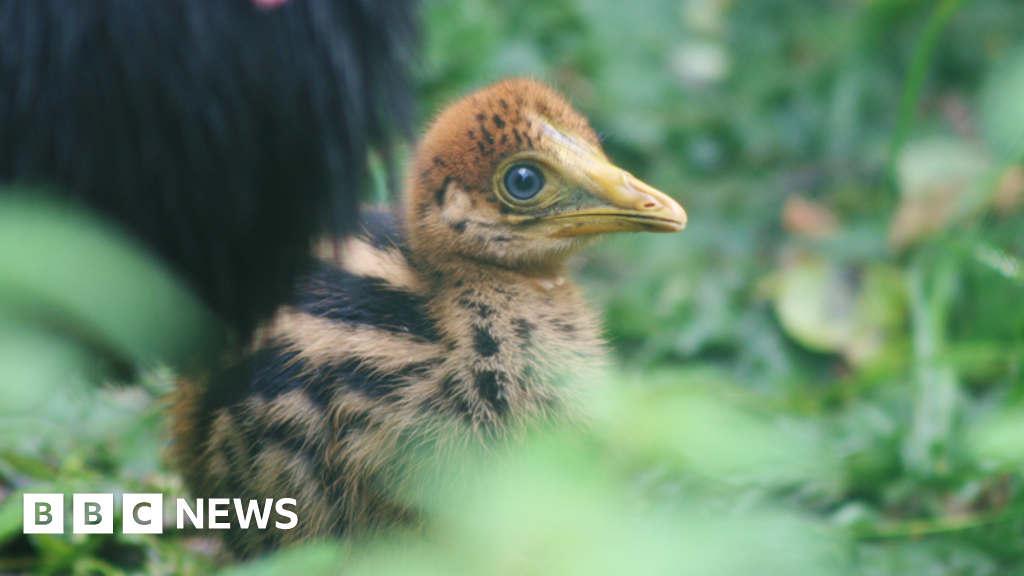A southern cassowary chick, one of the world’s largest and deadliest birds, has been successfully hatched for the first time at a bird park in the Cotswolds.
Keepers at Birdland in Bourton-on-the-Water, Gloucestershire, have been trying to breed the giant, flightless birds for more than 25 years.
The chick is only the fourth to hatch in Europe this year and the first born in the UK since 2021.
“When we caught our first glimpse of the tiny chick it was a very special moment indeed,” said keeper Alistair Keen.
 Birdland
Birdland“Cassowaries have a reputation as one of the world’s most dangerous birds and their size, speed and power combined with their dagger-like, 10cm claws mean we have to take looking after them extremely seriously.”
The Cassowary, which is related to the emu and native to the tropical forests of New Guinea and northern Australia, is considered so dangerous because of its powerful legs, a sharp claw and aggressive behaviour when threatened.
There have been documented cases of people being killed by cassowaries, with one of the most recent in 2019, when Marvin Hajos, 75, died after he was attacked by one of his pet cassowaries.
 Birdland
BirdlandThe proud parents of the new chick, a male from Avifauna in Alphen, Netherlands, and a female from Frankfurt, Germany, have been at Birdland since 2012 and are part of the European Endangered Species Programme.
Before 2021, the hatching of Cassowary chicks in the UK was relatively rare.
Cassowaries are challenging to breed in captivity due to their specific environmental and behavioural needs.
The male incubates the eggs for up to two months and looks after the hatchlings.
Once the chicks hatch, the male leads them to his regular feeding grounds, protecting them for up to 16 months.


